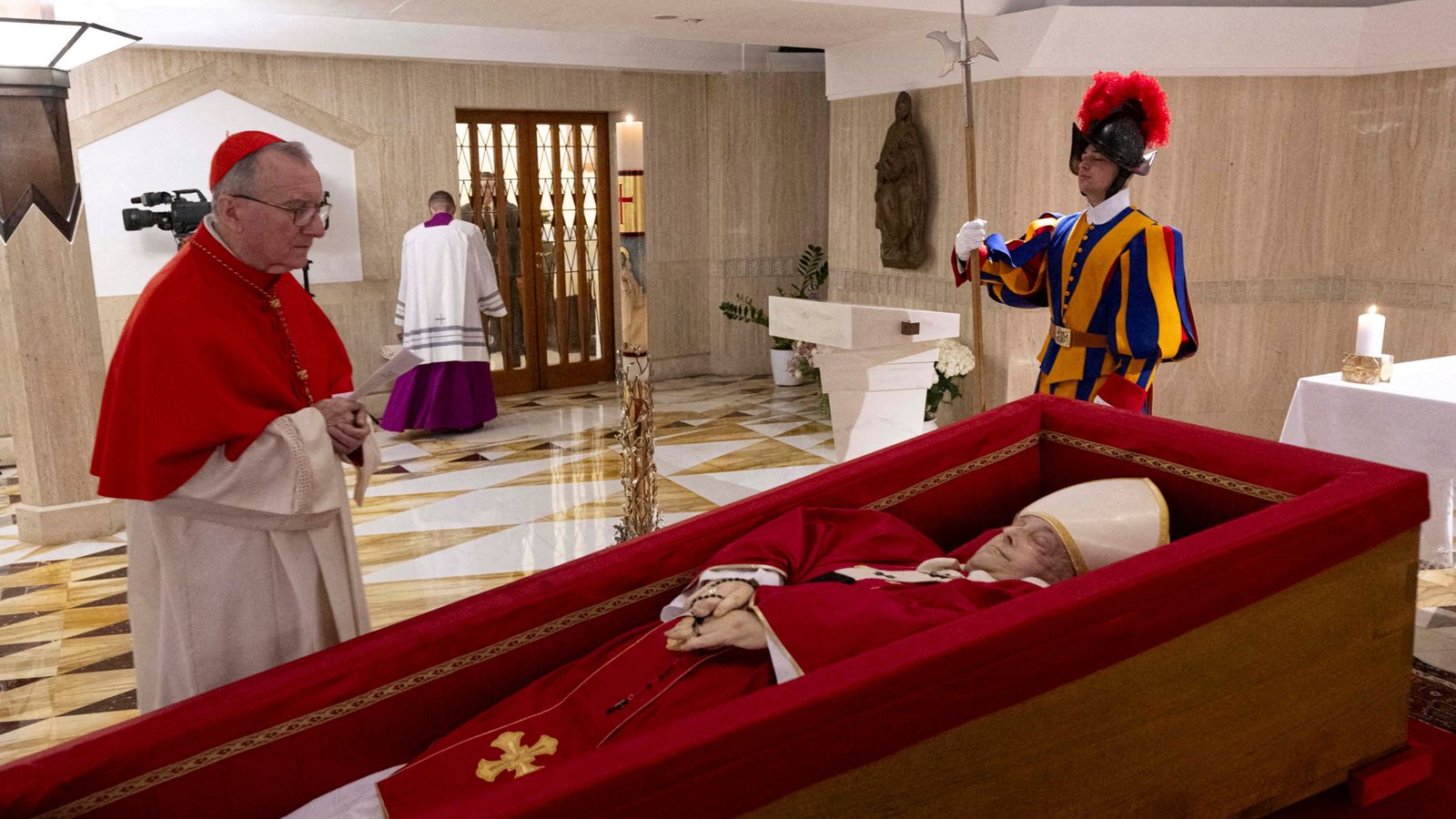Could the passing of a single individual truly send ripples of shock and hope across continents, touching the lives of millions? The recent death of Pope Francis, the first pontiff from Latin America, did just that, leaving an indelible mark on the world.
Pope Francis, a figure who transcended mere religious leadership, breathed his last on a Monday, at the age of 88. His passing came shortly after he delivered the traditional Easter blessing from the balcony of St. Peter's Basilica in Vatican City. This marked the end of an era and initiated a period of reflection on his legacy, a legacy that spanned continents and touched the lives of countless individuals, regardless of their faith.
Born Jorge Mario Bergoglio in Buenos Aires, Argentina, he ascended to the papacy in March 2013, succeeding Pope Benedict XVI, who had made the unprecedented decision to resign. For twelve years, Pope Francis stood as the most prominent Christian figure on the global stage. His voice resonated with a unique blend of compassion and conviction, championing the cause of the poor, the marginalized, and the vulnerable.
| Attribute | Details |
|---|---|
| Full Name | Jorge Mario Bergoglio |
| Born | December 17, 1936, Buenos Aires, Argentina |
| Died | [Date of Death] |
| Education | Master's Degree in Chemistry, Philosophical studies, theological studies |
| Profession | Catholic Priest, Bishop, Cardinal, Pope |
| Papacy | March 13, 2013 [Date of Death] |
| Predecessor | Pope Benedict XVI |
| Successor | [To Be Determined] |
| Key Initiatives & Focus | Emphasis on social justice, environmental protection (Laudato Si'), and reform of the Vatican. |
| Notable Quotes | "Who am I to judge?", "Be shepherds with the smell of sheep." |
| Reference Website | The Vatican Website |
His tenure was marked by a profound emphasis on spiritual values, particularly those central to Christian belief, which, he believed, were increasingly under threat. This focus was not merely theological; it translated into practical action and tangible support for those in need. His words and actions resonated with millions of progressive Christians in the United States and around the world.
The impact of his papacy extended far beyond the walls of the Vatican. His visits to various nations, including Iraq in 2021, brought rays of hope to communities that had endured immense suffering. His presence in the Joseph Chaldean Cathedral in Baghdad, for instance, during a time when Iraqi Christians were still grappling with the trauma of the IS attacks, held a special significance. For Iraqi Christians, it was a moment of rare hope, a testament to his global reach and his commitment to those living on the margins.
The emotional resonance of his pontificate was also evident in smaller, more intimate gestures. A phone call, lasting a mere 30 seconds, to Gaza's tiny Christian population, became a symbol of solace and solidarity. In times of crisis, it was these moments of connection that defined his papacy, and made it so special.
His influence was recognized and felt even by those on the political stage. One of the last officials to meet with Pope Francis before his passing was J.D. Vance. This indicates the breadth of the Pope's relationships and the significance of his influence, as well as his willingness to engage with diverse perspectives.
Pope Francis's journey began in Buenos Aires, Argentina. His path was not solely defined by his religious duties, he had a deep and spiritual connection to the world, from the people of his hometown, to the people of the world. He was born Jorge Mario Bergoglio, his journey began as a simple man, with a strong connection to his faith and his community. Later he dedicated his life to the Church.
Before becoming Pope, his predecessor, Pope Benedict XVI, held the title of Patriarch of the West. In 2024, Pope Francis reversed this decision, reinstating the title. This move was a deliberate attempt to strengthen ties with other patriarchs within the Eastern Orthodox faith, showcasing his dedication to ecumenical dialogue and unity.
The importance of Pope Francis extended beyond the confines of the Vatican and the broader Christian world. He exemplified a spiritual leader in times of trouble, showing compassion and understanding for people, and for the importance of core christian values. These values, increasingly under attack, particularly by the hard right in Europe and the United States, were a cornerstone of his papacy. He never wavered from his commitment to the poor and the marginalized.
The first appearance of Pope John Paul II, on October 16, 1978, marked a significant moment in the history of the papacy. It was followed by the second ecumenical council, and the council of Rome in 382. These historical events show a continuity and evolution within the Catholic Church, and the ongoing need for dialogue and the importance of the papacy.
Beyond the Church, the legacy of Pope Francis is evident in the discussions and actions that have followed his passing. Social media and professional networks have been buzzing with reactions, reflecting the global impact of his life and work. One can view Christian Pope's profile on LinkedIn, for instance, to witness how his teachings have impacted the world.
In Rome, a city steeped in history, a Roman citizen once held the title of Pontifex Maximus, a position which was later held by Pope Francis, the first head of the Roman Catholic Church to come from Latin America. This marks a significant evolution, demonstrating the evolution of religious and social values.
His pontificate has been a beacon of hope, a voice for the voiceless, and a testament to the enduring power of faith and compassion. The death of Pope Francis, while a moment of sadness, also provides an opportunity to reflect on his profound impact on the world and the legacy of hope he leaves behind.


